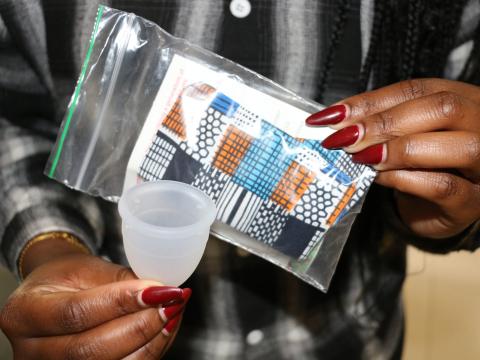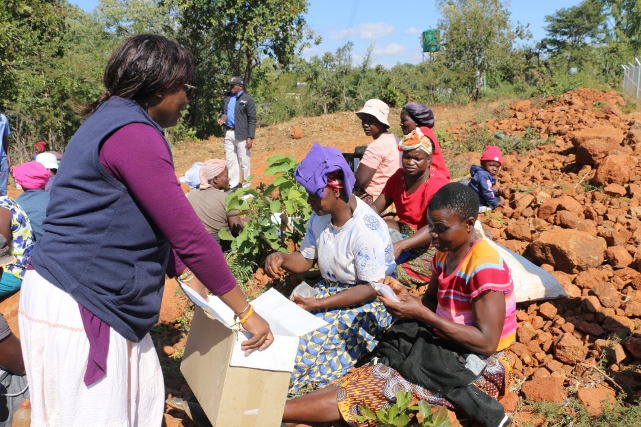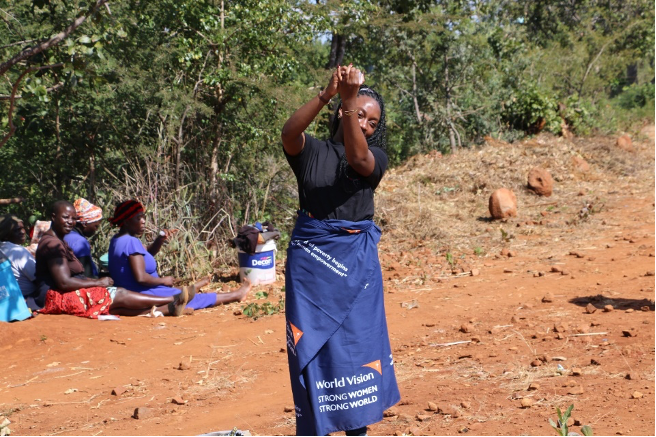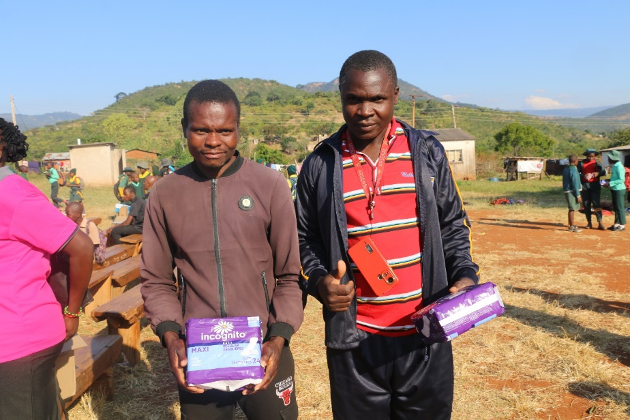Dignity in a Cup: Empowering Women Through Sustainable Menstrual Care

By Leana Padera (Communications Graduate Intern)
In many communities across Zimbabwe, menstruation is more than a health issue – it is a barrier to dignity, education and equal opportunity. For countless women and girls, managing their period means using old rags, facing stigma, and suffering in silence.
To help ease this burden, World Vision Zimbabwe, with generous support from Strong Women Strong World, partnered with CouldYou to distribute 200 menstrual cups and provide training on their use in Mhakwe Operational Area. Women from the Midlands Micro Irrigation Project received training on how to use menstrual cups.

The training session not only introduced the menstrual cup, a reusable, affordable, and long-lasting alternative but also opened up a safe space for women to share their personal experiences and challenges. Among the sad testimonies was one from Abigail, who said,
“Sometimes I use old rags because I cannot afford to buy pads every month. “It is uncomfortable and unhygienic, pads are a luxury I cannot always afford.”
Others spoke about more sensitive and disturbing issues, such as men requesting sex during their menstrual cycle highlighting the deep social and economic vulnerabilities women face simply for having a period.
The introduction of menstrual cups brought a wave of relief and hope. With the potential to last up to 10 years, these cups offer not only cost savings but also dignity, freedom, and a more sustainable solution to menstrual care.
“We are happy that the women have embraced these menstrual cups. We are encouraged by the women’s enthusiasm and readiness to use the menstrual cups,” said Leona from CouldYou, expressing her joy at the positive reception.

Shingai, a dedicated GESI facilitator from World Vision Zimbabwe, expressed immense gratitude and joy in being able to extend this vital helping hand.
“Thanks to the unwavering support from Strong Women Strong World, World Vision Zimbabwe is making significant strides in ensuring that women and girls can manage their menstrual hygiene with confidence and peace of mind”.

The initiative extended further as women from various communities were also trained in how to make reusable pads another empowering and sustainable option. Encouragingly, men have also participated in the life changing initiative, signalling a growing awareness and shared responsibility around menstrual health.
This initiative goes beyond the distribution of menstrual products it represents a step toward restoring dignity, breaking harmful taboos, and empowering women and girls to take control of their health.